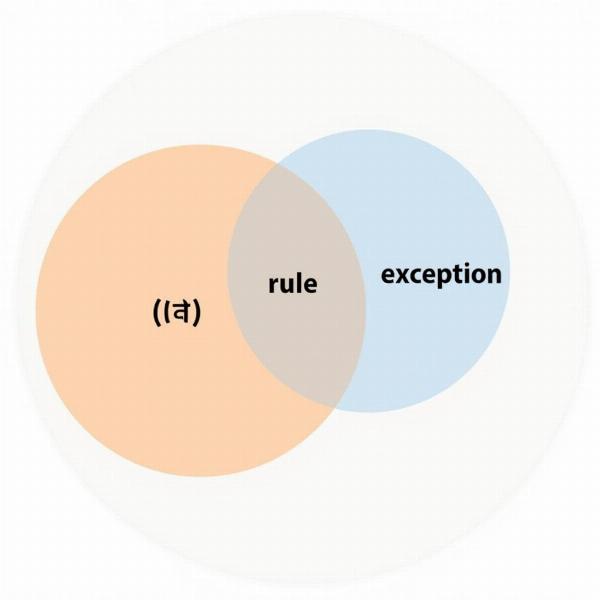Understanding the Hindi meaning of “exception” is crucial for anyone navigating the nuances of both English and Hindi. The word “exception” carries a sense of something outside the norm, a deviation from the rule, or an instance that doesn’t follow the expected pattern. This concept translates into Hindi with various words, depending on the specific context.
Common Hindi Translations for “Exception”
Several Hindi words capture the essence of “exception,” each with its own subtle shade of meaning. The most common translations include:
- अपवाद (apvad): This is perhaps the most direct and frequently used equivalent of “exception.” It refers to something that deviates from the general rule or principle.
- अतिरिक्त (atirikt): This word translates to “extra” or “additional” and can be used when referring to something that is added beyond the usual or expected. While not a perfect synonym for “exception,” it can be appropriate in certain situations.
- बाहर (bahar): Meaning “outside” or “out,” this word can imply something that falls outside the established boundaries or norms.
- विशेष (vishesh): This word translates to “special” or “particular,” and can be used to denote something that is treated differently from the norm, thus forming an exception.
Choosing the Right Hindi Word for “Exception”
The appropriate Hindi translation for “exception” depends heavily on the context. Consider these examples:
- “There is an exception to every rule.” Here, अपवाद (apvad) is the most suitable translation: “हर नियम का एक अपवाद होता है।”
- “He made an exception for her.” In this case, विशेष (vishesh) might be more appropriate, indicating special treatment: “उसने उसके लिए विशेष व्यवस्था की।”
- “Data outside the expected range is an exception.” Here, बाहर (bahar) could be used: “अपेक्षित सीमा के बाहर डेटा एक अपवाद है।”
 Hindi Meaning of Exception – Context
Hindi Meaning of Exception – Context
Exception in Legal and Technical Contexts
In legal and technical documents, accuracy is paramount. अपवाद (apvad) is typically preferred in legal contexts, while the choice in technical contexts might depend on the specific field. Consulting a professional translator is always recommended for critical documents.
What about “exception handling” in programming?
In programming, “exception handling” refers to the process of dealing with errors or unusual events during program execution. This is commonly translated as “अपवाद प्रबंधन (apvad prabandhan)” in Hindi.
Conclusion
Understanding the various Hindi translations of “exception” allows for clearer communication and a deeper appreciation of the nuances of both languages. While अपवाद (apvad) remains the most common equivalent, remembering the context and exploring other options like अतिरिक्त (atirikt), बाहर (bahar), and विशेष (vishesh) can lead to more accurate and effective communication. Choosing the right word truly depends on the specific situation and the intended meaning.
FAQ
- What is the most common Hindi word for “exception”? अपवाद (apvad)
- Can I use “atirikt” for “exception”? While not a perfect synonym, it can be appropriate in contexts referring to something extra.
- How do I say “exception handling” in Hindi? अपवाद प्रबंधन (apvad prabandhan)
- Which word should I use in legal documents? अपवाद (apvad) is generally preferred.
- Is it important to consider the context when translating “exception”? Absolutely! The context heavily influences the best choice of Hindi word.
- Where can I find reliable Hindi translations? Professional translators or reputable dictionaries are excellent resources.
- What if I’m unsure about the correct translation? It’s always best to seek guidance from a Hindi language expert.
Meaning-Hindi.in offers professional translation services between Hindi and other languages, specializing in business, legal, technical, website localization, educational, and urgent translations. Our expertise ensures accurate and culturally sensitive translations for various needs. Contact us today for your translation needs at [email protected] or call us at +91 11-4502-7584. Meaning-Hindi.in is your trusted partner for bridging language barriers.